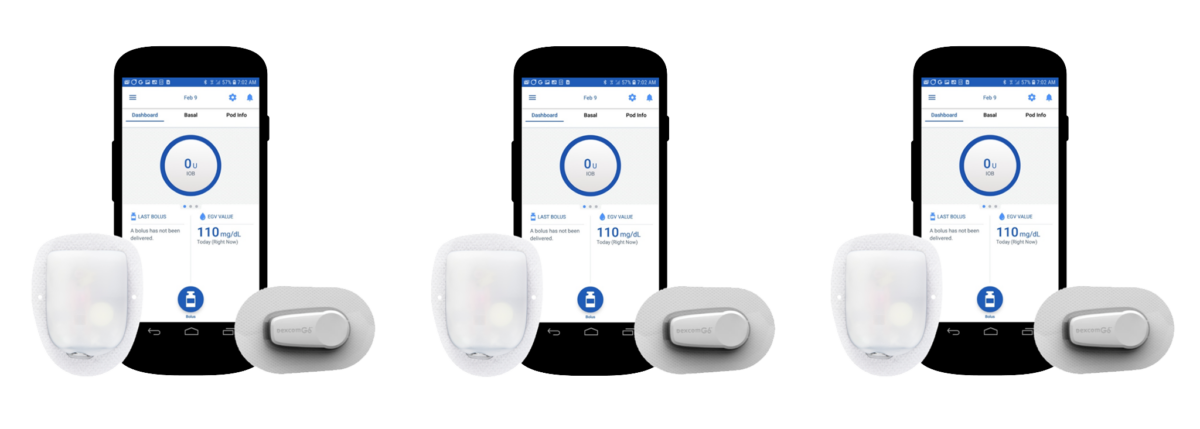England’s NHS Releases Study on Risk of COVID-19 for People with Diabetes
Written by: Lala Jackson
4 minute read
May 21, 2020
This week, the National Health Service (NHS) in England released the first study of its kind, breaking down COVID-19 mortality risk by type of diabetes among patients being treated in hospitals. The study follows WHO and CDC warnings that people with diabetes are in a “high risk” group for COVID-19, but goes further to show relative risk of death for people with type 1 and type 2 diabetes who have been hospitalized with COVID-19.
What the study shows us
The study looked at data from the almost 61.5 million individuals registered with the NHS. Of those, just over 2.8 million (4.7 percent of the population) have recorded diagnoses of type 2 diabetes, and just over 260,000 (0.4 percent of the population) have recorded diagnoses of type 1 diabetes.
Based on these broad numbers of prevalence of diabetes in the U.K., the study examined the relative risk for a person with diabetes—type 1 or type 2—being hospitalized and then dying from COVID-19. The study found that of the 23,804 total deaths from COVID-19 within the NHS between March 1st and May 11th, 2020, 7,466 (31.4 percent) of those people had type 2 diabetes, while 365 (1.5 percent) had type 1 diabetes.
When compared against overall prevalence of both types of diabetes in the country, the study determined that in-hospital death from COVID-19 was more likely for people with diabetes than those without—3.5 times more likely for people with type 1 diabetes and 2.03 times more likely for people with type 2 diabetes, when compared to people without diabetes.
However, important to note is that while people with diabetes are at greater risk of dying from COVID-19 than a person without diabetes, the overall risk of dying from COVID-19 for anyone with diabetes remains low. The primary risk factor, for people with or without diabetes, is still age. Deaths from COVID-19 for people with type 1 diabetes under the age of 50 was so low that the numbers were not included in the study (instead listed as “suppressed due to small numbers”). The greatest risk remains for people over the age of 65, with diabetes of either type adding additional risk.
What the study doesn’t show us
The study adjusted for age, sex, socioeconomic status, ethnicity and geographical region. When the study factored in a few concurrent pre-existing conditions (previous hospitalizations from heart disease, cerebrovascular disease, or heart failure) the risk factors for people with diabetes decreased (2.86 times the risk for people with type 1 and 1.81 times the risk for people with type 2). Not all risk factors could be accounted for.
We do not yet know clear data on cause of death—whether individuals died because of complications from COVID-19 itself, or whether complimentary care of other pre-existing conditions (diabetes included) was a contributing factor. The study did not account for pre-existing conditions for which there had not been previous hospitalizations, such as asthma (another risk factor for COVID-19 complications). We do not yet know if continuous glucose monitor (CGM) usage, like in some US hospitals where CGMs have been given special clearance for in-hospital use during COVID-19, decreases risk of mortality in people with diabetes hospitalized for COVID-19.
Endocrinologist Dr. Anne Peters notes, “[The data] is concerning for people over 50 with type 1 diabetes, but there is much we don’t know based on a population cohort study. We have no idea of the glycemic control for people who died or what happened to them in the hospital (for instance, did they have diabetic ketoacidosis (DKA?)). What we do know is that if you have type 1 diabetes (and type 2 diabetes) and are over the age of 50, you might be at more risk of dying from COVID-19. This may be particularly true if you have complications of diabetes and poor blood glucose control, which is something we know from other studies.”
Important takeaways
What we do know is that the best way to avoid complications from COVID-19 is to avoid getting the virus by taking as many precautions as possible. Not every person can take every precaution, but every precaution taken matters. For a full list of high-impact precautions, visit CoronavirusDiabetes.org.
Additionally, people with diabetes—type 1 or type 2—must always be able to advocate for themselves in any hospital setting. No matter the reason for the hospitalization, diabetes care must be equally important as any other care required to ensure that blood sugar levels (low or high) and DKA do not become additional factors that contribute to poor health outcomes or death.
And while learning can be gleaned from the NHS, each country has a different healthcare system, has had a different response to COVID-19, and has different factors that contribute to overall healthcare access. More data will be needed over time to determine which factors most contribute to mortality rates for people living with diabetes. In the US, for example, we know that drastic healthcare disparities will play a major role in overall outcomes. This study does not shed any light on the role diabetes management and average blood glucose levels play on COVID-19 risk, though we know this is likely an important factor as it is with all infectious illness.
Overall, the NHS study confirms that until there is a widely available vaccine for the novel coronavirus, people with diabetes—type 1 and type 2—are more at risk for dangerous complications and death caused by COVID-19, just like with any virus or flu. Dr. Anne Peters recommends that those with diabetes “maintain good blood glucose control, be prepared to avoid DKA and avoid getting COVID-19. Increasingly this is a matter of personal choice so be sensible but don’t live in fear. We will get each other through this!”
To learn more about what you can do to protect yourself and others, go to coronavirusdiabetes.org.

Author
Lala Jackson
Lala is a communications strategist who has lived with type 1 diabetes since 1997. She worked across med-tech, business incubation, library tech and wellness before landing in the type 1 diabetes (T1D) non-profit space in 2016. A bit of a nomad, she grew up primarily bouncing between Hawaii and Washington state and graduated from the University of Miami. You can usually find her reading, preferably on a beach.
Related Resources

Already compatible with Dexcom’s G6 and G7 continuous glucose monitors (CGMs), the Omnipod 5 Automated...
Read more

The younger a person is diagnosed with type 2 diabetes, especially those with obesity, the...
Read more

The Oura Ring, which tracks things like sleep, heart rate, and activity, is joining forces...
Read more

